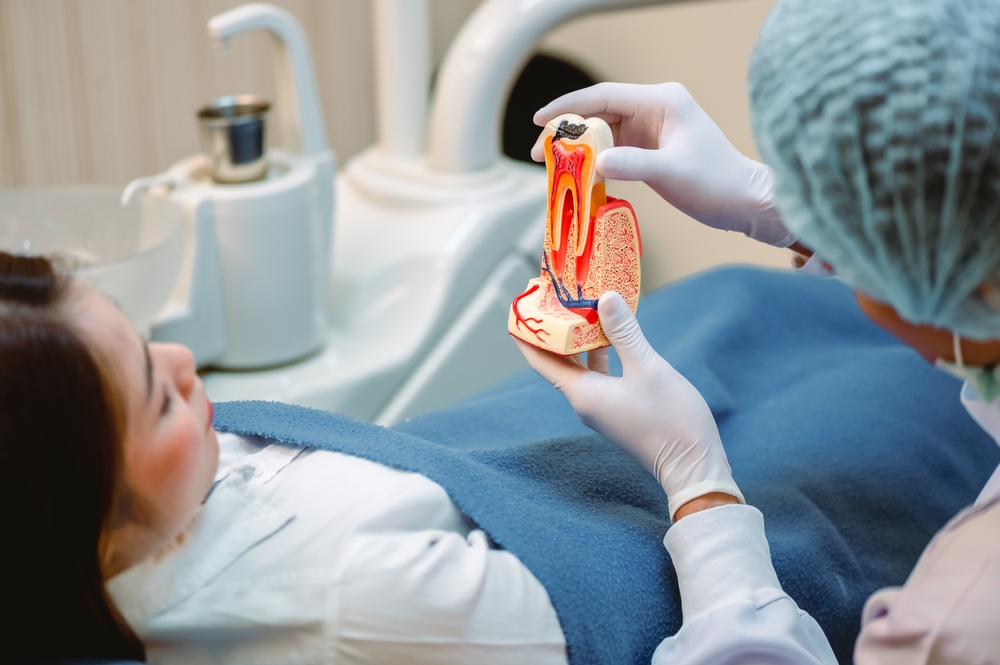When tooth pain strikes, it’s often difficult to tell how serious the problem is. While some discomfort can be resolved with a simple filling or cleaning, others may require more extensive treatment. One such procedure is the root canal treatment, a dental procedure designed to clean out, repair, and preserve a severely damaged or infected tooth, preventing further decay or even tooth loss.
So, how can you tell if you might need a root canal? Below are six key warning signs to look out for.
1. Persistent Tooth Pain
Persistent tooth pain that doesn’t go away, even after taking over-the-counter painkillers, can be a major red flag. If the pain spreads to your jaw, face, or neighboring teeth, it may be caused by an infection deep within the tooth. When this happens, the tooth’s pulp (the soft inner tissue) could be inflamed or dying, making root canal treatment necessary to remove the infection and relieve the pain.
2. Swollen or Tender Gums
Swollen gums around a particular tooth can be more than just a sign of irritation – they may signal a serious infection. When the pulp inside a tooth becomes damaged or infected, the body responds by sending white blood cells to fight it off. This process can produce acidic waste, which leads to inflammation and swelling in the gums and surrounding bone near the root tip.
3. Pimples on the Gums (Gum Boils)
A pimple or bump on your gum, also known as a gum boil, parulis, or dental abscess, can be another telltale sign of an infected tooth. This occurs when pus builds up due to infection and creates a pocket, or swelling near the root tip. A root canal may be then necessary to eliminate the source of infection and prevent further complications.
4. Tooth Discolouration
If one of your teeth has turned gray or dark in color, it could indicate that the pulp inside the tooth has died. Whether due to trauma, decay, or an untreated cavity, the dying tissue and lack of blood supply causes the tooth to lose its natural whiteness. This is often more than a cosmetic issue – it typically requires a root canal to prevent the spread of decay and restore your smile.
5. Sensitivity to Hot and Cold
While the occasional sensitivity is normal, lingering discomfort after consuming hot or cold foods like coffee, soup, or ice cream could suggest nerve damage or infection. If your tooth aches long after exposure to temperature changes, it may be a sign that the pulp is compromised. A root canal procedure can help preserve the tooth and eliminate the sensitivity.
6. Loose Tooth
If your tooth feels loose or unstable, it may be due to an infection that’s weakening the surrounding bone and tissue. The acidic byproducts of nerve death can soften the bone around the tooth root, resulting in mobility. Although loose teeth can also stem from gum disease or trauma, it’s often a warning sign of internal infection that calls for root canal therapy.
Don’t Ignore the Signs
If you’re experiencing any of the symptoms above, it’s important to see a dentist as soon as possible. Early intervention can save your natural tooth, relieve pain, and prevent further complications.
At TLC Dental Centre, our experienced dental team is well-versed in root canal procedures and committed to helping you smile with confidence. Call us today at +65 9113 2847 to schedule an appointment.

